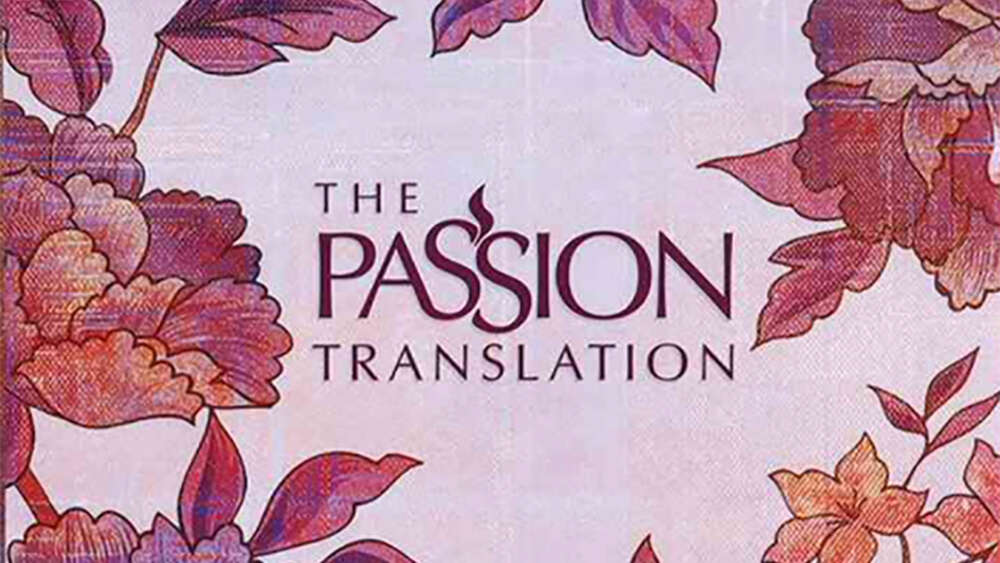Bible Gateway, a popular site that contains a wide range of Bible versions, has removed The Passion Translation. The Passion Translation (TPT) has attracted controversy because it is a very loose “paraphrase” rather than a translation of the translation, that contains a theological bias.
Brian Simmons, the church planter who produced The Passion Translation’s original version is unhappy, if a widely-circulated image of a Facebook post is genuine. “So cancel culture is alive in the church world. Bible Gateway just removed TPT from their platform,” he writes on social media. He asks people to tell Bible Gateway they want The Passion Translation back.
When Eternity covered the arrival of The Passion Translation, the Bible Society’s translation consultant John Harris explained what a paraphrase is.
“To paraphrase is to expand or add to the original words in order to enhance their meaning,” Harris wrote. “Sometimes a Bible translation requires more than one word to make the meaning clear.
“When the ‘grace of God’ is sometimes translated these days as ‘the undeserved kindness of God’ in a modern translation like the Good News Bible, some people may strictly speaking say this is a paraphrase. But in fact, it is not. It is a translation of the Greek word charis in an era when the single word ‘grace’ is no longer understood by the average person and is therefore insufficient to express what charis means, especially to people outside the church,” says Harris.
“There are, however, versions like The Message which add a lot more words and expand the text. Eugene Peterson never calls The Message the Bible. He admits that it is free form and intended to help us understand the Bible, but that it is not the Bible.”
Harris warned that paraphrases can go too far.
“The task of a Bible translator is different from that of a writer of a paraphrase,” says Harris.
“There are several problems with paraphrases which Bible translators must strictly avoid.
“The first is temptation is to add too much to the original text. This is the kind of thing The Message sometimes does, but Peterson does not claim that what he has written is the Word of God.
“The second temptation is to add things which were never there in the first place, to put explanations in the text itself. Here lies the real danger because there is always the temptation to add words which push the text towards a particular theological position.”
The Passion Translation is a good example of this, according to Harris.
“Philippians 1:2 says: ‘Grace and peace to you from God our Father and the Lord Jesus Christ. (NIV)’
“In TPT, the same phrase reads: ‘We decree over your lives the blessings of divine grace and supernatural peace that flow from God our wonderful Father, and our Anointed Messiah, the Lord Jesus.’”
The issue is a bit obvious! Greek, 11 words. NIV 14 words. TPT 27 words.
“There are obviously many additional words. A relatively harmless addition here is the word wonderful. Yes, God is wonderful, but the original is not talking about the wonder of God and so to use the word is to add to what the Bible originally said. We cannot add words, even good words, and say it is faithful to the original text,” says Harris.
“A far more worrying phrase is ‘We decree over your lives..’ Not only are these added words, which were not in the original, but they express a particular theology. Paul, as an apostle, according to this ‘translation’, had power over the giving of the grace of God. An apostle had the power the decree that grace be given.”
That was based on what TPT said in 2019.
Now that verse reads in an updated The Passion Translation “May the blessings of divine grace and supernatural peace that flow from God our wonderful father and our messiah, the Lord Jesus be upon your lives.”
This is a radical change, back towards how true translations render that verse. The newer editions of The Passion Translation appear to contain revisions that follow this pattern.
In a similar vein, TPT latest edition’s version of Galatians 1:6 has now lost some additional words (italicised) “a distorted gospel of salvation by works” which gave one particular interpretation of what Paul was saying.
Zondervan has not given their reasons for dropping TPT. It may be a temporary absence from Bible Gateway, as they assess changes to the Bible version, or it may be that the tension involved in calling a paraphrase a translation is causing difficulty. Or that Zondervan is waiting to see if the theological bias in the Passion translation is corrected. Or it could even be a technical glitch.
One good outcome would be to have the scholars who criticised The Passion Translation at the time of its launch take a good look at where it is now. Has it been sufficiently improved?
When what is now called the Living Bible was first released, it was criticised as being a paraphrase. However, it went from being the work of one person, Kenneth Taylor, to having a scholarly committee oversee it. A similar process is occurring with TPT. It remains to be seen if that satisfies the concerns that Zondervan and others have.
Email This Story
Why not send this to a friend?



